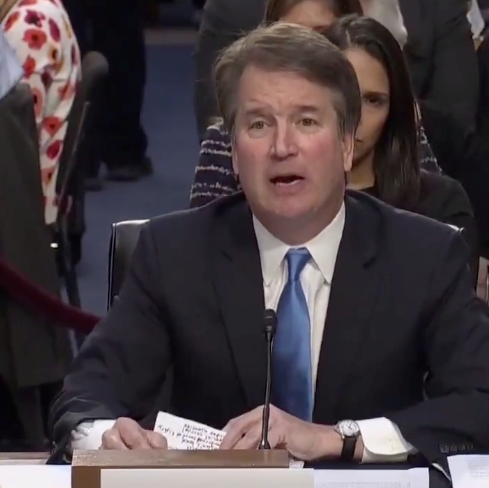Should sitting presidents be subject to subpoenas? Kavanaugh still won't say.


A free daily email with the biggest news stories of the day – and the best features from TheWeek.com
You are now subscribed
Your newsletter sign-up was successful
Even without protesters and senators rocking the floor, Supreme Court nominee Brett Kavanaugh's ongoing confirmation hearing was sure to be complicated. On Wednesday, the second day of Kavanaugh's confirmation hearing, Sen. Dianne Feinstein (D-Calif.) asked the nominee whether "a sitting president [would] be required to respond to a subpoena." Kavanaugh's views on the issue have been hotly debated as legal troubles swirl around President Trump.
Kavanaugh, pleading the "Justice Ginsburg principle," said he couldn't answer Feinstein's "hypothetical question." But he did discuss the U.S. v Nixon ruling, saying the Supreme Court — including former President Richard Nixon's own nominee to the bench — unanimously mandated that Nixon release his secret recordings specifically "in response to a criminal trial subpoena." It's "an important precedent of the Supreme Court," Kavanaugh said, but as a "sitting judge and a nominee," he couldn't say how it would apply in the future.
With Special Counsel Robert Mueller currently investigating the Trump campaign and some top Trump associates, several legal experts have questioned whether a sitting president could be subjected to a subpoena. In the past, at least, Kavanaugh has opined that Nixon "may have been wrongly decided," but while working on former President Bill Clinton's investigation in 1995, Kavanaugh wrote it would be "weak" to protect a president from testifying to a grand jury. He seemingly reversed his opinion again in 2009, writing in a Minnesota Law Review article that "the president should be excused" from "burdens" like criminal investigations.
The Week
Escape your echo chamber. Get the facts behind the news, plus analysis from multiple perspectives.

Sign up for The Week's Free Newsletters
From our morning news briefing to a weekly Good News Newsletter, get the best of The Week delivered directly to your inbox.
From our morning news briefing to a weekly Good News Newsletter, get the best of The Week delivered directly to your inbox.
A free daily email with the biggest news stories of the day – and the best features from TheWeek.com
Kathryn is a graduate of Syracuse University, with degrees in magazine journalism and information technology, along with hours to earn another degree after working at SU's independent paper The Daily Orange. She's currently recovering from a horse addiction while living in New York City, and likes to share her extremely dry sense of humor on Twitter.
